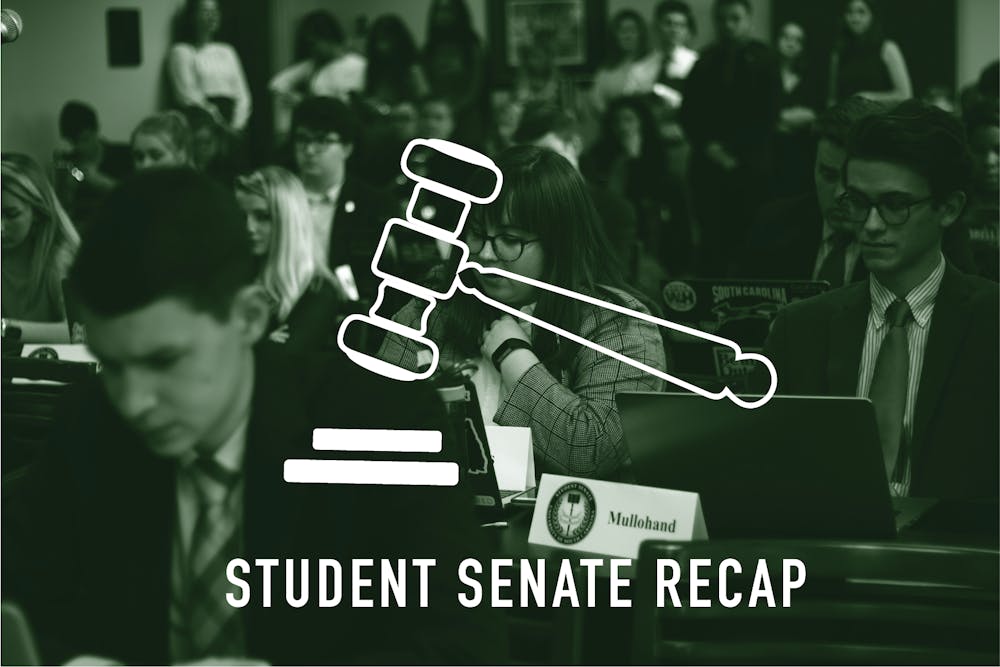Three pieces of legislation were introduced in the student senate on Wednesday and designed to combat ableism – the systemic discrimination against disabled people.
Student senators Noah Glasgow and Jacob Carroll are co-sponsoring a bill that recommends annual ableism training for administration, faculty, staff and student employees. Currently, ableism training is only given when student complaints about university behavior grow numerous.
“I think a lot of ableism that we have in our university is implicit. So we don't recognize that we're doing it just because it's not something that we're conditioned to learn early on,” Glasgow said.
Carroll introduced two other bills about ableism. One recommends advocating for professors to remove rhetoric against technology use in the classroom from their syllabuses. Carroll is concerned the language makes students with disability accommodations feel uncomfortable using technology in the classroom.
Carroll said he has experienced this discomfort himself. In one of his courses, the professor told the class that technology was discouraged as a hindrance to learning.
“I'm a student with dyslexia – I use technology in the classroom,” Carroll said. “I waited until about three-quarters of the semester to start using my laptop.”
Carroll said he heard of similar experiences at a panel at Delta Alpha Pi, an organization for students with documented disabilities.
Another bill recommends that professors offer closed captioning on all time-based media. Closed captions on recorded audio content for synchronized media can help deaf and hard-of-hearing students keep up in class.
“It's come to my understanding from students from the Delta Alpha Pi disability discussion that professors in the Social Work program are not adhering to time-based media closed captioning for students that have accommodations, who are hard of hearing,” Carroll said.
Closed captions access can be a required accommodation through the Student Disability Resource Center and is also a standard recommended by the Web Content Accessibility Guidelines (WCAG).
A bill was also introduced to recommend amending the USC faculty sabbatical policies regarding effective contributions to the university upon return from sabbatical.
“I found that there are instances where professors have been granted sabbatical, but one of the requirements for being granted sabbatical is that once you are finished with sabbatical, you must return to campus and teach for at least one year,” student senator Emily Giep, co-sponsor of the bill, said.
The current policy says professors who do not teach at least a year post-sabbatical must return the half-salary they are paid during their sabbatical, according to the proposed legislation.
Glasgow also introduced a bill to make the university code of conduct violations grounds for impeachment.
“There have been members of student government that have created environments within this organization that make other members feel unsafe and unwelcome and not wanting to participate,” Glasgow said.
He said he could not give further specifics about who created this environment or what was said.
“This is something that's clearly a violation of what we are as student leaders on this campus, and that if you violate the code of conduct, and you were found by your peers to be guilty — merit impeachment or whatever — that we can pursue that action,” Glasgow said.

